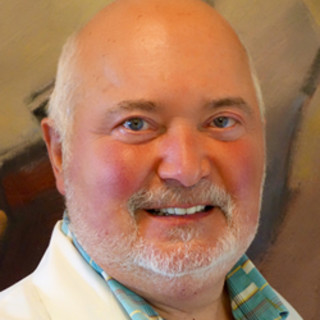
The Bible records a Roman governor, Pontius Pilate, inquiring of a man who was brought before him for judgement. He asked Jesus: “What is truth?” To many, truth is akin to the spectrum of the rainbow with many interpretations. What is truth in our profession when it relates to providing care and counseling to our patients? There is an assumption, as clinicians that we will not lie concerning disease or prognosis. We are trusted PAs. The Oxford English Dictionary defines truth as "a belief that is considered accurate and factual." Based upon this definition, does a physician or PA or NP have an obligation to be truthful or can they “shade the truth” to a patient?
The Charter on Medical Professionalism, endorsed by more than 100 professional groups worldwide, and the U.S. Accreditation Council for Graduate Medical Education require openness and honesty in physician communications. One can and should not expect less from PAs or NPs. Why is lying wrong? It endangers and is an abuse of patient trust. Trust is essential to the relationship that we build with our patients. The most important tool in your medical bag should be character, as demonstrated by your virtue and your honesty.
There have been national studies with physicians on this subject and, without outlining the many details, the conclusion is stark: MDs can do better. You can construct your comments with positive percentages and honesty, which states that we will work together to do everything in our abilities to treat a present illness. But you cannot sugarcoat a prognosis to give undue hope to the patient or family. There is evidence-based practice and reality-based practice; both are partners on the dance floor.
I proposed a question on PhysicianAssistant.com asking PAs, whether it is ever ethically responsible to lie to your patient. A majority of the responses were a flat and short “lying to the patient — never.” A PA in Texas had a patient who had had a stroke two years prior; the man had not walked since. When asked if he was ever going to walk again, the PA replied, “Never.” The wife was furious because she felt that the PA had deprived them of hope, despite his answer being honest, simple and polite. The patient had to know that when the PA tells him something, it is the truth. Otherwise, he would not be able to trust anything that the PA said or did. As a clinician, you may choose not to reveal the entire differential diagnosis with the goal of alleviating stress. But to offer paternalistic statements, one PA said, is just plain bad. There are some “nevers” in our world that are not only wrong, but could lead to litigation. Never tell a patient that they have cancer without a biopsy. A smart, experienced PA related that the manner in which you present a potential diagnosis — without lying or giving false hope — is the art of medicine and patient care.
I have seen patients with pancreatic cancer expire in a month and I have seen others live fruitful lives, recreating their relationships, and living for four years. There are no absolutes when giving a prognosis, but we must share what we know to be clinically correct, as well as offer hope. Rather than play the part of the Grim Reaper, we have the ability to, as Maya Angelou writes, “Be a rainbow in someone’s cloud.” Trust is gained in small steps with each encounter, but when trust is violated it runs away as fast as a locomotive. Trust is sacred for a PA and their patient.
Trust is accountability when we are speaking of the relationship between a PA and their patient. And accountability means credibility. If we lose our credibility, what are the consequences? Lack of credibility and trust invites scrutiny and becomes a barrier that can result in anger, frustration and action. That action can easily become litigation because of a medical error, a prescribing error, poor communication, or a failure to diagnose or to treat. Behind that litigation is often a person who feels violated by a health care worker whom they thought they could trust.
Robert M. Blumm, MA, PA, PA-C Emeritus, DFAAPA, is a retired surgical PA, national conference speaker, author, former AAPA Liaison to American College of Surgeons, a member of the Editorial Advisory Board of Clinician1.com, Advisory Board POCN, reviewer for Urgent Care Journal Past President (4) state, and national associations.







